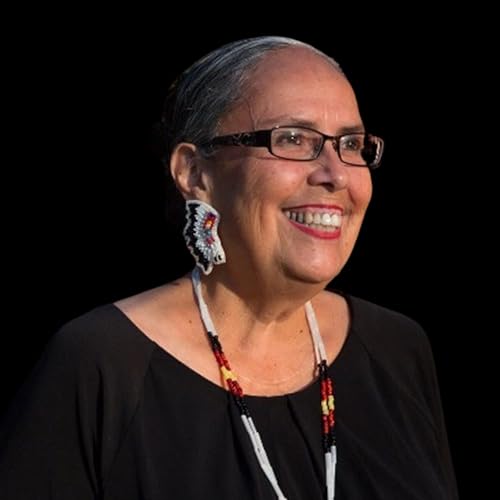Mary Youngblood, a citizen of the Seminole and Aleut Nations, is a groundbreaking musician and the first woman to professionally record the Native flute. She is also the first woman to win not just one, but two Grammy Awards for Best Native American Music Album. A classically trained flutist, Mary’s lifelong journey in music began with piano lessons at the age of six and expanded to guitar at ten. Her artistic path has always been rooted in a deep connection to both music and her cultural identity.
It wasn’t until adulthood that Mary was gifted her first wooden Native flute—a moment that marked the beginning of a passionate commitment to an instrument traditionally played only by men. Her compositions, which blend classical, blues, and traditional Native sounds, are haunting and melodic, resonating with audiences across generations. With a collection of over 250 hand-carved flutes, Mary allows each instrument’s unique spirit and texture to shape her performances.
She has released six celebrated albums with Silver Wave Records, including Dance With the Wind, which earned her the 2007 Grammy, and Beneath the Raven Moon, which won in 2003. Her work has also been recognized by the Native American Music Awards, the Association for Independent Music, and the New Age Voice. Mary has collaborated with iconic artists such as Ian Anderson, Bill Miller, and Joanne Shenandoah, weaving messages of healing, identity, and connection to the natural world into her original compositions.
In her first-ever podcast interview, Mary opens up about her life as an adopted child and the powerful journey of reconnecting with her birth family and culture. She shares stories from her 14 years working in California prisons, where she brought music, culture, and self-expression to incarcerated individuals—work that she describes as deeply joyful and meaningful. She also reflects on the challenges of navigating the music industry, including the elimination of the Grammy category for Native American Music, and speaks candidly about the fine line between cultural appropriation and appreciation when it comes to non-Native flute players.
Mary is not only a performer but also a respected educator and mentor, dedicated to passing on her knowledge and love for the Native flute to the next generations. Her performances are more than concerts—they are spiritual experiences, where music becomes a form of prayer and storytelling.
Today, Mary lives in Northern California, where she continues to compose, teach, and “dance with the wind” among the trees that inspire her. To learn more or listen to her music, visit MaryYoungblood.com or stream her albums on all major platforms.
 1 時間 17 分
1 時間 17 分 1 時間 9 分
1 時間 9 分 1 時間 9 分
1 時間 9 分 1 時間 25 分
1 時間 25 分 1 時間 47 分
1 時間 47 分 1 時間 46 分
1 時間 46 分 1 時間 17 分
1 時間 17 分 2025/03/281 時間 19 分
2025/03/281 時間 19 分
